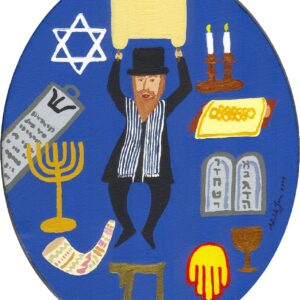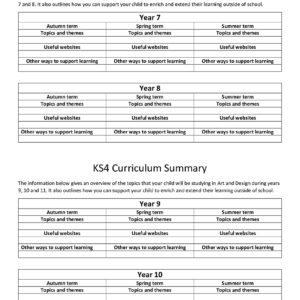Welcome to Religious Studies at Eastbrook. The Religious Studies curriculum has been designed to foster inter-faith understanding and allow students to explore the philosophical debates about living as a good and just person on earth. Students are expected to develop their interdependent learning through classroom debates, researching and completing tasks outside of the classroom.
Key Stage 3
Religious Studies in KS3 is desegregated throughout multiple subjects such as ECS and History. Students will undertake studies in understanding different religious beliefs and teachings, sacred places and folklore stories to develop moral understanding. In readiness for KS4, students should be able to question the validity of religious beliefs and teachings, understanding the secular and religious views about modern life in Britain and the issues facing citizens.
Key Stage 4
Due to the nature of exam and the level of content knowledge required over 2 years, Religious Studies only teaches the major themes (Families and Relationships, Life and Science, Revelation and God, Crime and Punishment) and religions (Judaism and Christianity) in order to provide opportunities to students to explore each theme and religion in depth.
In readiness for KS5 and further afield, students are expected to show deeper understanding of the differences and similarities among religious doctrine towards living a fulfilling life and engaging with modern life issues. Key concepts surrounding morality and mortality are detailed and expanded upon within several beliefs. Students can identify conflict of secular and religious beliefs and can develop a justification for multiple views with religious teachings as supporting evidence. Additionally, Students are expected to acquire the skills in debating, persuasive writings, anthropological and sociological study of religion, key terminologies and concepts of existence and the history of religion.
Curriculum Enrichment
Religious Studies provides the following opportunities for students to further their understanding:
- Interventionist workshops
- Day trips to religious sites such as the London Jewish Museum and local Churches and Temples
- Inter-faith roundtable with dialogue and debates with religious practitioners and leaders.
Homework
Homework is set according to the unit studied by the students on showmyhomework.co.uk. Students will be expected to revise and complete exam questions based on their studied topic in conjunction with the work booklet produced by the Religious studies department.
Students will also be expected to complete revision quizzes to further cement their understanding and knowledge of Religious Studies.
Career Opportunities
Careers using religious studies are in the field of International Development and Social Work such as aid workers, youth workers and councillors, Hospitality and Service industry, Human Resources, Education, Journalism, Academic and Social Studies, and Religious and Political institutions such as policing, MI5 and think tanks.
For more information of jobs, skills, salary and prospects – follow this link: Working in Theology
Exam Boards
Religious Studies undertakes the following exam board and papers:
AQA Specification A 8062/13 Paper 1 Option 3: Christianity
AQA Specification A 8062/16 Paper 1 Option 6: Judaism
AQA Specification A 8062/2A Paper 2A: Thematic studies (excluding textual studies)
Support for exams
https://www.bbc.com/bitesize/examspecs/zy7spbk
http://www.gcsepod.co.uk/subjects/religious-studies/
http://www.revisionworld.com/gcse-revision/rs-religious-studies
http://www.truetube.co.uk/
http://www.aqa.org.uk/subjects/religious-studies/gcse/religious-studies-a-8062
https://www.tes.com/teaching-resources/gcse-exam-revision/religious-studies
https://thebibleproject.com/





